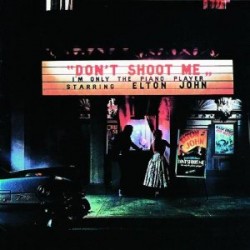
I really should go to bed because I have to get up very early tomorrow (by 10:00 a.m.) but my head is still spinning from my day-long attendance at the AOEP 2011 Recruiters Best Practices Summit. My thanks to Lou Gaglini and Dan Kilgore for putting up with me.
First things first: all sessions were great, but Jeremy Eskenazi’s presentation entitled “Navigating Corporate Politics” was funny and brilliant and in a sense, heartwarming — simply the best session I have ever attended.
The things I learned at the conference are endless. A quick example is Lou Gaglini’s brilliant question from his session entitled “Anatomy of an Effective Interview:”
Question: “What is an interview?” (Not really such an easy question, is it?)
Answer: “It is a very important business meeting.” (A simply inspired answer as I see it.)
I can go on endlessly about the conference, but one concept must be spoken of here and now. And that concept is “Recruiters as facilitators” — pointed out by Jeremy.
I have been in this business for a long time. I grew up in the agency biz and later moved into consulting and project work. Endless clients later I have never quite thought of it in that light. Silly me. Recruiters as facilitators is an eye-opening concept — a realistic model of the life we as recruiters must live.
Recruiters as facilitators holds sway big time because it inserts a sense of reality and clear thinking into the hiring process by pointing out what should be obvious but often times is not — that we as recruiters are only facilitators in the hiring process and nothing more. In what can often times be a long and convoluted process (should this even be a long and convoluted process in the first place? Most often no, but that is fodder for another article) that goes from the development of a position profile all the way to a candidate’s acceptance of an offer, we can only do three things:
- We can drive the process by always moving things to the next level through a sense of urgency and effective communication.
- We can act as a consultant to the hiring manager as well as anyone else involved in the process to ensure quality and professionalism at each step.
- We can do whatever is possible to close the deal when an offer is made and be sure that the candidate is prepped to start.
Read the above stated three bullets again and remember them, because this is all we can possibly do in our roles as recruiters. Often times, we can cajole, push, pull, and politic in a heartfelt struggle to do what we see as right — to hire a great candidate who can do the job we seek to fill, and create a successful employment scenario. This is easier said than done.
Sadly, corporate sensibilities or lack thereof, internal wrangling, and endless other circumstances can stand in our way. When push comes to shove, the hire we seek will at times not happen. Notice my use of words. I did not say that we failed. I said that the hire did not happen, and I hope that the subtly of my message is not lost on the reader. We can only do so much, and beyond that, we are at the fate of winds and forces far beyond our control.
Is there comfort to be taken from the realization that our good work can lead to naught? That we can go home on a Friday knowing full well a hire that should have happened did not and now we must stare at beginning anew on a cold and cloudy Monday? I think so and I urge you to consider the following thought for your comfort.
Hiring by its nature is a difficult and messy business. I have seen this to be the case with every client I have ever known. I have seen it when it is fun and I have seen it when it was heartbreaking. As recruiters, all we can do is continue to grow and to exercise our best judgment. All we can do is hold true to the standard of care and consideration we know to be the best work we can impart. Simply stated, all we can really do is to try — and amidst our best labors, flights of fancy, and visions of success, know that at times, it simply will not happen. I do not see that as my problem. I see it as an organizational problem and I simply move on. That is our reality as facilitators.
As for me, please don’t shoot me — I am just the clarinet player.